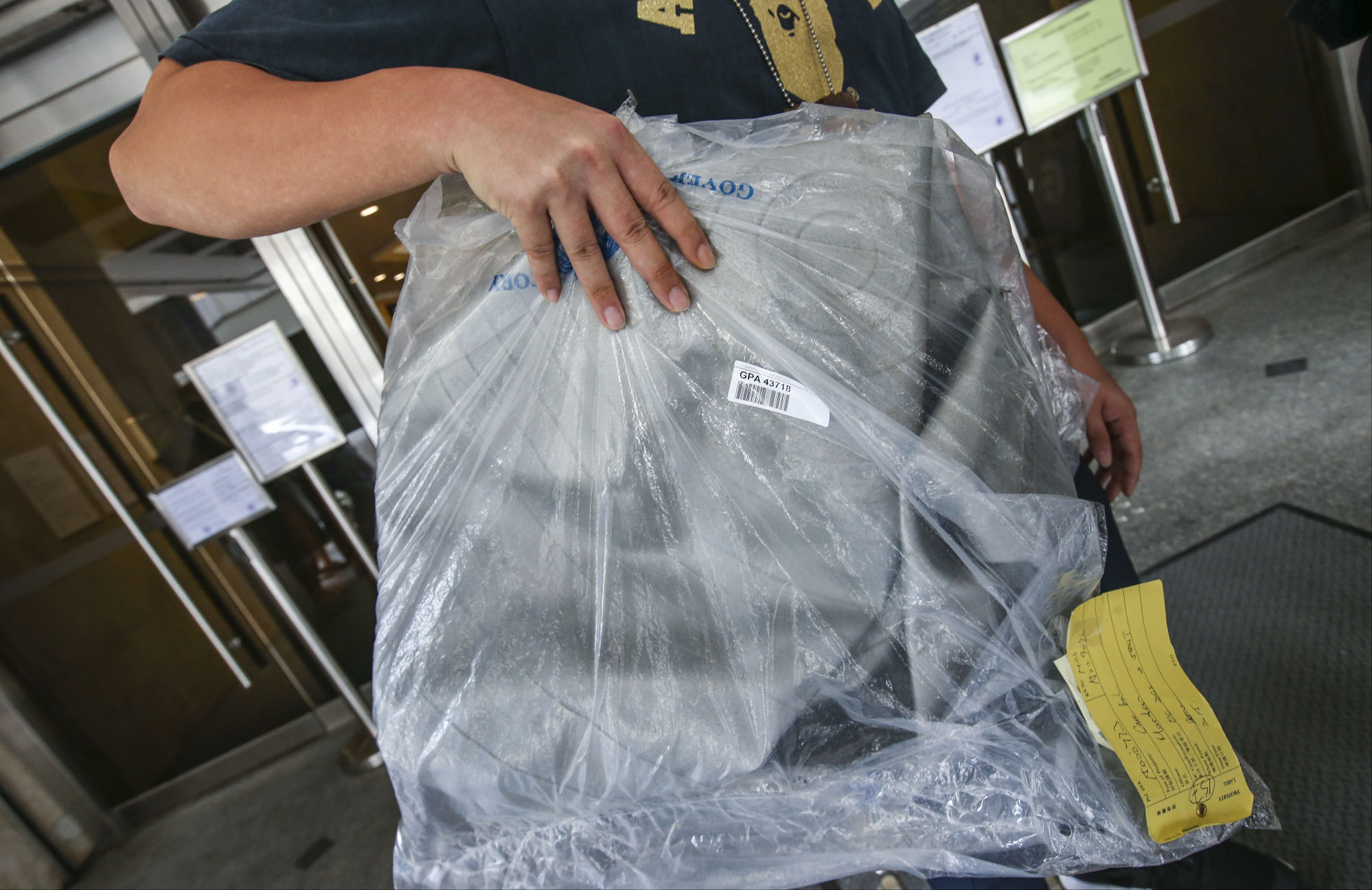
Malaysian professor loses appeal against life sentence for yoga ball murders in Hong Kong
- Khaw Kim Sun killed his wife and their second child by placing a leaking inflatable ball containing a lethal amount of carbon monoxide in the boot of their car in 2015
- Rejecting all 44 grounds of appeal, court held that Khaw had undergone ‘a thoroughly fair trial’, with ‘cogent and compelling evidence’ to justify jury’s verdict
A Malaysian anaesthesiologist has lost an appeal against his life sentence for murdering his wife and daughter with a gas-filled yoga ball in Hong Kong seven years ago, with three judges dismissing the defence’s assertion that the deaths could have been an accident.
The Court of Appeal on Tuesday rejected Khaw Kim Sun’s request to quash his convictions following a 21-day trial in 2018 in the Court of First Instance, where a nine-member jury unanimously found him guilty of two counts of murder.
The former Chinese University professor, who turns 57 this year, killed his wife Wong Siew Fing, 47, and their second child Lily Khaw Li Ling, 16, by placing a leaking inflatable ball containing a lethal amount of carbon monoxide in the boot of their yellow Mini Cooper in 2015.
He had sought to cover the plot by telling his colleagues that he needed the gas for an experiment.
Yoga ball murder: professor who killed wife, daughter deregistered by medical body
Rejecting all 44 grounds of appeal, the court held that Khaw had undergone “a thoroughly fair trial”, with “cogent and compelling evidence” to justify the jury’s verdict.
The bench found no issue with the trial judge’s direction to jurors, and instead lauded her for her “thorough and meticulous” instructions which effectively refuted many of the defence’s complaints raised in the appeal.

The Court of First Instance heard in 2018 that the two victims died of carbon monoxide poisoning in the afternoon of May 22, 2015, after they were found unresponsive in the car parked at the Sai O Village bus stop, a four-minute drive from their home at Tai Tung Village in Ma On Shan.
The motive of the killings remains unclear, but evidence in the trial revealed that Khaw had an extramarital affair with one of his students and his marriage had been an unhappy one.
Although nobody witnessed who placed the yoga ball in the car and when, the jury accepted prosecutors’ submission that Khaw was the only one who could have done that by a process of elimination.
Defence counsel had sought to exonerate Khaw by suggesting the ball could have been put in the car for a yoga-related purpose, pesticide, suicide or any other reason unknown to the court.
Yoga ball murder victim's sister recalls their last conversation
Most of the 44 grounds of appeal centred on the approach taken by Mrs Justice Judianna Barnes Wai-ling in her instructions to jurors. Lawyers contended that the judge had provided an unbalanced and inaccurate summary of the case, on top of numerous errors concerning the relevant legal principles.
In their ruling, justices Jeremy Poon Shiu-chor, Andrew Macrae and Kevin Zervos found that Barnes had carefully summarised the facts surrounding the case in a fair and comprehensive manner, with clear and precise directions as to the conditions required for the jury to be satisfied with a guilty verdict.
“There was a strong case against the applicant that it was he who placed the yoga ball in the Mini,” the 139-page judgment said. “We are bound to say that there was little if any evidential basis to support a realistic possibility that the deaths of Madam Wong and Lily were an accident.”
The anaesthesiologist can still take his case to the Court of Final Appeal.
The Medical Council of Hong Kong deregistered Khaw from both its governing lists of general practitioners and specialists in July 2020, slamming him for bringing “disrepute” to the profession by committing “the most serious crime”.
